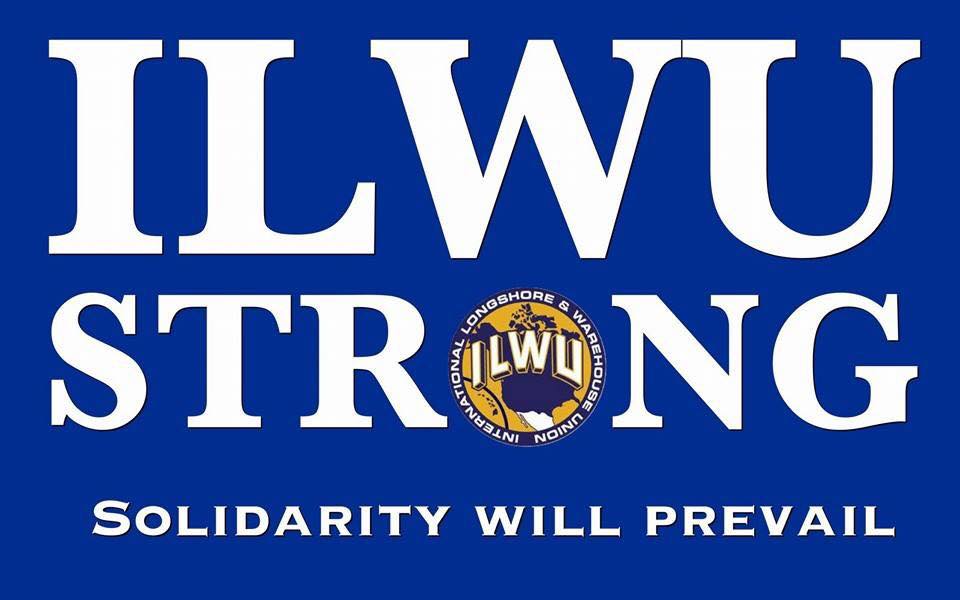Chicago Mayor Rahm Emanuel is demanding cutbacks and concessions, but teachers are pushing back amid a wider attack on public-sector unions. Lee Sustar reports.
Source: Chicago teachers vs. Rahm: Round two | SocialistWorker.org
From NOEBIE.net
Brian K. Noe · ·
Chicago Mayor Rahm Emanuel is demanding cutbacks and concessions, but teachers are pushing back amid a wider attack on public-sector unions. Lee Sustar reports.
Source: Chicago teachers vs. Rahm: Round two | SocialistWorker.org
Brian K. Noe · ·

May Day Celebration – Noon to 1: 30 PM Haymarket Memorial, Corner of DesPlaines & Randolph
May Day 2015 March, Rally, and Noise Demonstration – 2:30 PM Union Park
Illinois Labor History Society Annual Membership Meeting – 5 to 7 PM Chicago Federation of Musicians, 656 Randolph Street, Haymarket Square
The Joe Hill Roadshow – 9 PM Hideout, 1354 West Wabansia Avenue, Chicago
Brian K. Noe · ·
Paul Buchheit at Common Dreams takes a look at The Project on Government Oversight’s latest report on privatization. They found that in 33 of 35 cases the federal government spent more on private contractors than on public employees for the same services. The authors of the report said “Our findings were shocking.”
For the U.S. Postal Service, for instance, it costs less than 50 cents to send a letter to any remote location in the United States. For an envelope with a two-day guarantee, FedEx and UPS charge about four to five times as much.
USPS is so inexpensive, in fact, that Fedex actually uses the U.S. Post Office for about 30 percent of its ground shipments. As Ralph Nader notes, the USPS has not taken any taxpayer money since 1971, and if it weren’t required by an inexplicable requirement to pre-fund employee benefits for 75 years, it would be making a profit. Instead, this national institution has been forced to cut jobs and routes and mailing centers.
In other words, privatization places profits over people.
Read the entire article: How Privatization Degrades Our Daily Lives | Common Dreams | Breaking News & Views for the Progressive Community.
Brian K. Noe · ·

A dispute between the International Longshore & Warehouse Union and the Pacific Maritime Association has drawn the attention of President Obama, who has now sent Labor Secretary Thomas Perez to meet with the sides. It is not yet known what specific message was conveyed to the negotiators. Some have speculated that the Obama Administration is threatening to invoke the Taft-Hartley Act to reopen the ports in the event of either a strike or a lockout.
A Department of Labor press release on the matter stated the following. “On behalf of President Obama, Secretary Perez made clear that the dispute has led to a very negative impact on the U.S. economy, and further delay risks tens of thousands of jobs and will cost American businesses hundreds of millions of dollars.” It also said that the two sides must come to “immediate agreement to prevent further damage to our economy and further pain for American workers and their employers.”
This sort of talk seems a far cry from Obama’s campaign rhetoric, where he pledged to “put on a comfortable pair of shoes” himself and “walk on that picket line with you, as President of the United States of America.”
The PMA, an association of the owners of the 29 ports on the West Coast, has stepped up a media campaign to draw attention to the harm that the dispute may be doing to the larger U.S. economy. The President of the ILWU, Robert McEllrath, fired back two weeks ago, accusing the PMA of distorting the facts, threatening to close the ports and bargaining in the media instead of at the table.
“What the ILWU heard yesterday is a man who makes about one million dollars a year telling the working class that we have more than our share,” said McEllrath. “Intensifying the rhetoric at this stage of bargaining, when we are just a few issues from reaching an agreement, is totally unnecessary and counterproductive.”
The PMA on Wednesday distributed letters directly to workers at major ports from Los Angeles to Washington state that detailed what they called their last, best and final contract offer, apparently in hopes that the rank-and-file will pressure union negotiators to make concessions.
As the situation unfolds, we may get an opportunity to see whether or not the Obama Administration truly stands with the workers.
For nearly a century, the West Coast longshore and warehouse workers have stood, time and again, on the front lines of the struggle for freedom and justice. They deserve our attention, our respect and our support.
Brian K. Noe · ·
In this superb two-minute video, actor- activist Danny Glover champions the need for a vibrant public Postal Service and asks the public to join with him in A Grand Alliance to save it.
Danny Glover: Our Postal Service from A Grand Alliance on Vimeo.
Brian K. Noe · ·
With public attention focused on the railroads in a way it hasn’t been for decades, the cross-craft solidarity group Railroad Workers United is seizing the opportunity to teach the general public “railroading 101”—and teach rail workers “environmental politics 101.”
Read More: Rail Workers and Environmentalists to Teach Each Other | Labor Notes.
Brian K. Noe · ·
On a windblown, gray Chicago day 100 years ago, January 17, 1915, Ralph Chaplin left his home on the South Side for a raucous, poor person’s rally at the city’s famous women’s center, Hull House. He asked a visiting friend he’d met organizing coal miners with Mother Jones to listen to the lyrics of a new tune he had been working on. Here’s the story behind one of the most beloved Labor Hymns.
Read the article: ‘Solidarity Forever’ Written 100 Years Ago, Today | Labor Notes.
Brian K. Noe · ·
In These Times has an interview with Stanley Aronowitz on how the labor movement falters and how it might recover.
Post-political means that the union movement may endorse candidates or run its own, but essentially does not rely on electoral politics and public officials—that is, the state—to fulfill its goals. Instead, unions should rely on their own resources, on their own members and on their own imaginations to create conditions to make their members’ lives better, in the way that unions, especially in the early-to-mid-20th century, once established and ran very good, moderate-cost cooperative housing.We’ve been relying for so long on politicians to solve problems that the union membership no longer really relies on its own power. The proper word is really “post-electoral” or “post-state,” and it once had a tremendous resonance among large numbers of workers.
Read the interview: A ‘Post-Political’ Labor Movement – In These Times.
Brian K. Noe · ·
Here are some links to articles that caught my eye this week.
6 Ways Wall Street Is Hosing Chicago Teachers – Matthew Cunningham-Cook unpacks how the country’s biggest investment firms are endangering the Chicago Teachers Pension Fund.
We Need to Fight for Equality – William Spriggs reflects on how the Labor Movement and the Civil Rights Movement must be united.
Catholic Social Teaching and Adjunct Faculty Organizing – John Russo writes about Catholic Universities and the Social Teaching of the Church.
Some Facts That Poverty-Deniers Don’t Want to Hear – Three-quarters of conservative Americans think poor people have it easy. Paul Buchheit shows that they don’t.
Imagine If People Were Paid What Their Work Is Really Worth to Society – Professor Reich imagines.
Films that Debunk Corporate Education Reform – A list of must-see videos from Diane Ravitch’s Blog.
Israel/Palestine FAQ – Who are the Palestinians? Who are the Israelis? Is Folk Singer David Rovics a self-hating Jew? Find out in this FAQ.
Do Palestinians Really Exist? – When he was nine years old, Dean Obeidallah finally learned about his father’s people.
Brian K. Noe · ·
The Postal Service has been reporting revenue increases for five straight quarters. So why is Postmaster General Donahoe minimizing that winning streak? Over the last few years, faced with falling revenue, postal management has closed post offices, slashed rural office hours, sold historic buildings, cut jobs, and consolidated processing plants. It continues to seek closings and service cuts, such as eliminating Saturday delivery; but some of these moves have been delayed or curtailed by pushback from the public, from employees, and from legislators.
Read More: Why is the Postmaster General Understating Postal Revenue Gains? | Talking Union.